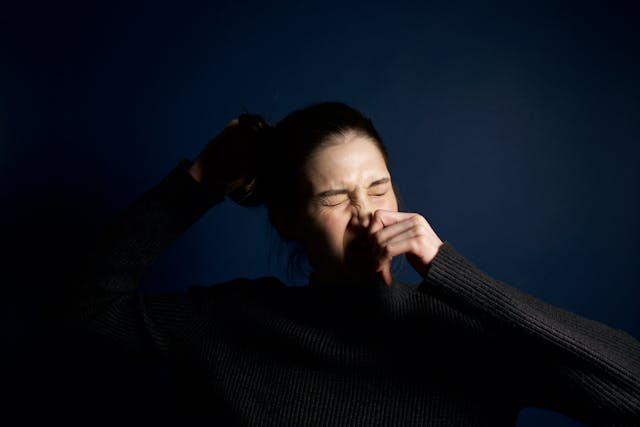Category Archives: Severe Allergies
Tips for Living with Severe Allergies
Living with severe allergies can be a daily challenge, but with proactive management, you can significantly improve your quality of life. This blog post offers practical tips to help you minimize exposure to allergens and effectively control symptoms. Whether you suffer from seasonal allergies, food sensitivities, or other allergic conditions, these strategies can make a meaningful difference in your well-being.

1. Identify and Avoid Triggers
Identify your specific allergens through testing and avoid them whenever possible. This includes food allergens, environmental triggers, and pet dander.
2. Create an Allergy-Free Home
Keep your home clean and allergen-free by using air purifiers, vacuuming regularly with a HEPA filter vacuum, and using hypoallergenic bedding. Control humidity levels to prevent mold growth.
3. Follow a Medication Plan
Work with your allergist to develop a medication plan that includes daily maintenance medications and emergency treatments like epinephrine auto-injectors.
4. Wear a Medical ID
Wear a medical ID bracelet that lists your allergies. This can be crucial in emergencies when you might not be able to communicate.
5. Plan for Eating Out
When dining out, inform the restaurant staff about your allergies and ask detailed questions about food preparation. Consider carrying allergy cards that clearly state your allergies.
6. Regular Medical Checkups
Regular visits to your allergist are important for monitoring your condition and adjusting your treatment plan as needed.
7. Emergency Preparedness
Always have an emergency action plan in place, including knowing the location of the nearest hospital and having quick access to emergency medications.
Tips for Living with Severe Allergies: Conclusion
While living with severe allergies can be demanding, remember that effective management is possible. By following the tips outlined in this blog post, you can take control of your symptoms, reduce exposure to allergens, and enjoy a higher quality of life. Remember to consult with a healthcare professional for personalized advice and support. With the right strategies in place, you can thrive despite your allergies.
For personalized advice and comprehensive allergy management, contact Dr. Boyan Hadjiev at Allergy, Asthma and Sinusitis P.C. Our dedicated team is here to help you live comfortably with severe allergies.
Contact Information
Allergy, Asthma and Sinusitis P.C
Boyan Hadjiev, MD
30 East 40th Street
New York, NY 10016
212-319-5282
Allergist for Severe Allergies
What Are the Symptoms of Severe Allergies?
Allergies can range from benign to life threatening. People might react completely differently to the same allergy, which sometimes makes them difficult to manage. While for some people, they might be a slight nuisance, allergy treatment can be a question of life and death for others. Let’s take a closer look at some of the symptoms of severe allergies and how to treat them.
Severe vs Mild Allergy Symptoms
To understand severe allergy symptoms, it’s important to know mild symptoms as well. Mild allergy symptoms will often be characterized by things like hives, a runny nose, itchy eyes, skin rash, stomach cramping and nausea. These are usually not life threatening even if they might spread to your entire body.
Breathing and Swelling Difficulties
In more severe cases, your immune system might start to overreact and cause swelling in multiple body parts. These can include the throat, tongue, lips, fingers, or toes for instance. Excessive swelling of the tongue and lips could eventually prevent you from breathing or speaking easily by blocking your mouth.
If the swelling extends to your throat, then it could cause some severe issues like shortness of breath, wheezing, trouble swallowing, trouble breathing or asthma. In these cases, steroid treatment or antihistamines might be able to treat these symptoms.
Allergic Asthma
Allergic asthma is caused when small particles located in your lungs start to become inflated, which causes swelling and airflow obstruction.
Allergic asthma is treated just like regular asthma. A rescue inhaler will usually be used for this type of asthma. It will allow your airways to expand, which will facilitate airflow to your lungs. However, in anaphylaxis cases, inhalers won’t be effective since its contents won’t be able to reach the lungs.
Anaphylaxis
Anaphylaxis is one of the most serious symptoms of severe allergy. This is when the throat becomes so swollen that it completely blocks airflow. Your blood pressure may start to drop, and your heartbeat can become weak. And if it lasts long enough, then you could even become unconscious.
If you happen to be suffering with allergies, only an allergist can help you evaluate your symptoms and give you the proper course of action in case of emergency. Contact us today to schedule an appointment with the best allergist in New York.
Serving all of New York City and the Tri State Area including Zip Codes: Top Allergist NYC Midtown, Chelsea and Clinton: 10001, 10011, 10018, 10019, 10020, 10036 | Gramercy Park and Murray Hill: 10010, 10016, 10017, 10022 | Greenwich Village and Soho: 10012, 10013, 10014 | Lower Manhattan: 10004, 10005, 10006, 10007, 10038, 10280 | Lower East Side: 10002, 10003, 10009 | Upper East Side: 10021, 10028, 10044, 10128 | Upper West Side: 10023, 10024, 10025
